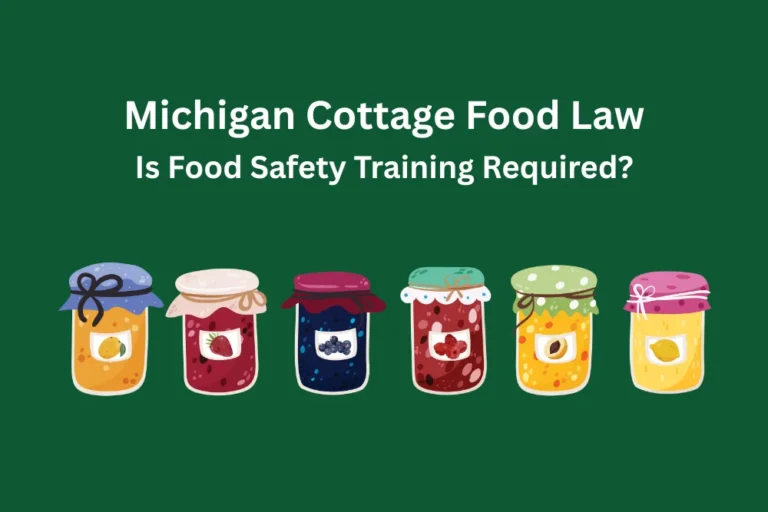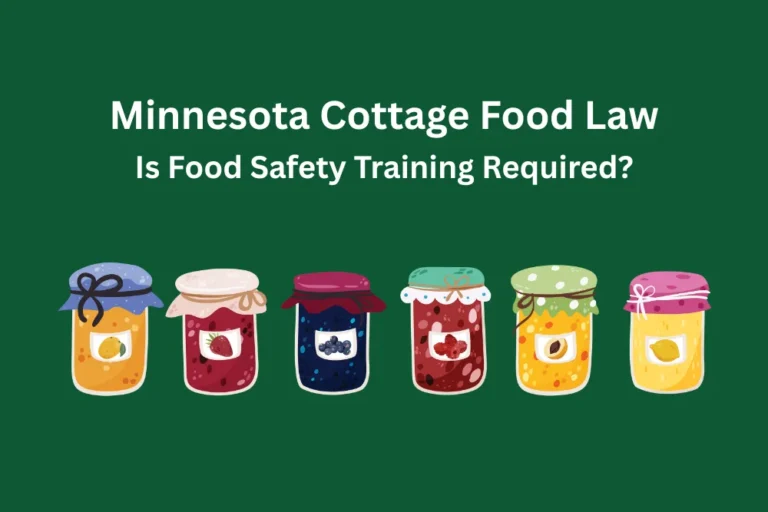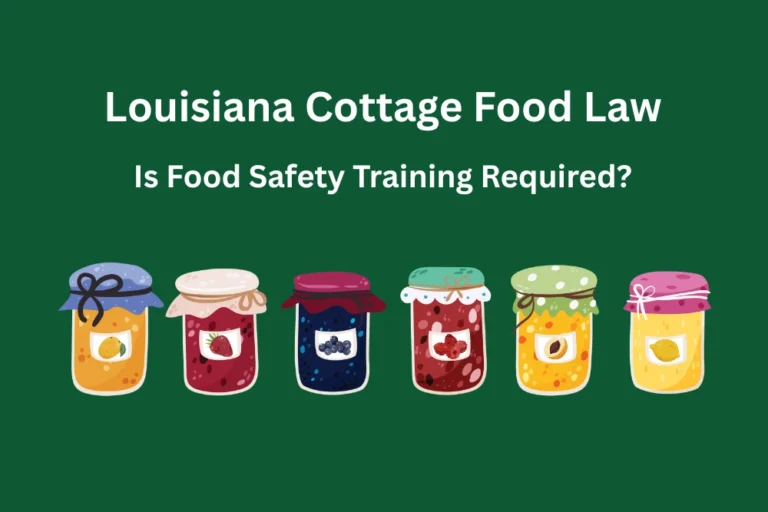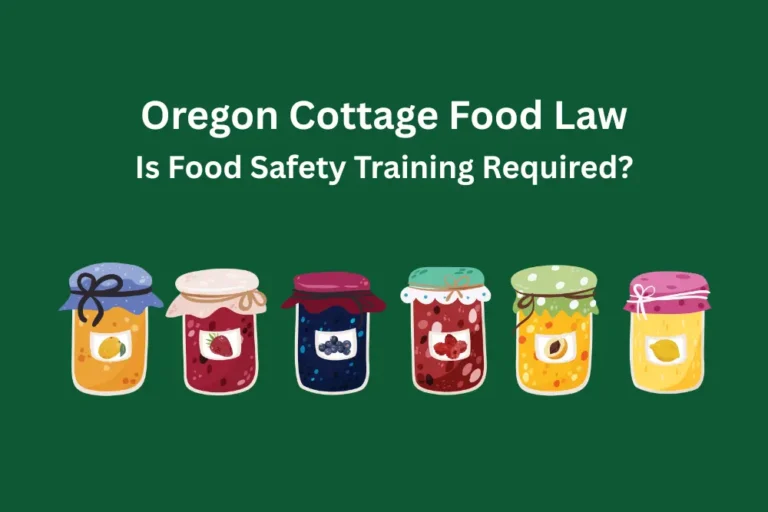Georgia Cottage Food Law: Food Safety Training Requirements
Article Summary
Selling homemade food in Georgia? You’ll need to follow the state’s cottage food law — and that includes completing a food handler training course. This short video explains exactly who needs training, what foods you can sell, and how to get your card online with FoodSafePal.
Food that you make at home and sell to other people directly is known as cottage food.
Each state has its own cottage food law, which regulates the types of foods you can sell, to whom and how you can sell them, and even how much revenue you can earn each year from selling cottage food.
Before you can open for business, some states require that you complete a food safety course.
This article discusses the Georgia cottage food law, and whether you need food safety training to sell homemade food.

Georgia cottage food production
Georgia allows the production and sale of homemade foods that don’t require time or temperature controls to keep them safe.
Allowed foods include:
- cakes
- fruit pies
- dried fruits
- pastries and cookies
- candies and confections
- jams, jellies, and preserves
- bread loaves, rolls, and biscuits
- dry herbs, seasonings, and mixtures
- cereals, trail mixes, and granola
- coated or uncoated nuts
- vinegar and flavored vinegar
- popcorn, popcorn balls, and cotton candy
Georgia allows you to sell these non-potentially hazardous foods in person at events, online, and even to retail food establishments like restaurants and grocery stores, but you cannot sell across state lines.
Conversely, you cannot produce time-temperature controlled for safety (TCS) foods, such as:
- mushrooms
- raw sprouts
- milk and dairy products
- meat (beef, pork, lamb)
- poultry (chicken, turkey, duck), including eggs
- fish, shellfish, and crustaceans
- untreated garlic and oil mixtures
- cooked, plant-based foods like rice, beans, potatoes, or soy products like tofu
Georgia’s cottage food law does not require a license to operate a cottage food business.
Summary
Under the Georgia cottage food law, you can sell foods that don’t require time-temperature controls for safety directly to other people in the state. You don’t need a license to operate a cottage food business in Georgia.
Do you need food safety training to sell homemade food in Georgia?
While Georgia has no license or permit requirements, the state requires that you complete an approved food safety course.
Georgia only accepts food safety training courses that are ANSI-National Accreditation Board (ANAB) accredited.
FoodSafePal’s Food Handler training course is ANAB-accredited so it meets Georgia’s food safety training requirement for cottage food operators.
Earn Your Food Handlers Card + Certificate to Sell Cottage Foods
Finish in 90 Minutes. Meets Georgia’s Cottage Food Law.
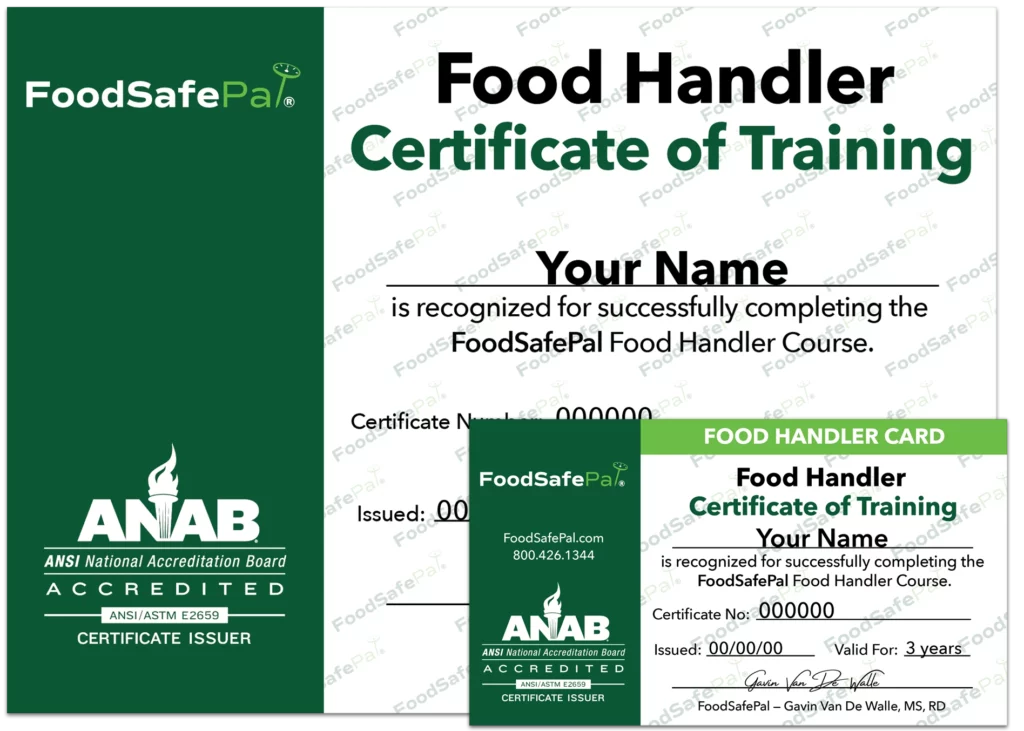
The course was created for employees in retail food establishments like restaurants and healthcare facilities, so some of the content isn’t applicable to cottage food businesses.
However, the course still covers the essential food safety principles you must know to keep the food you produce and sell safe from contaminants and disease-causing organisms known as pathogens that can make someone sick.
After completing the course, you’ll need to pass a multiple-choice test to earn your Georgia food handlers card and certificate.
Summary
Georgia’s cottage food law requires completion of an ANSI-National Accreditation Board (ANAB) accredited food handler training course — such as FoodSafePal’s — to operate your cottage food business.
Labeling requirements
Georgia’s cottage food law requires that every food item you make and sell includes specific information to informs customers.
This information is typically displayed on a label affixed to the product, but depending on how the item is sold, it can also appear on your website or a placard at the point of sale.
No matter the format, the following must be provided:
- Business name
- Home address
- Phone number
- The following statement in at least 10-point font: “This product was produced at a residential property that is exempt from state inspection. This product may contain allergens.”
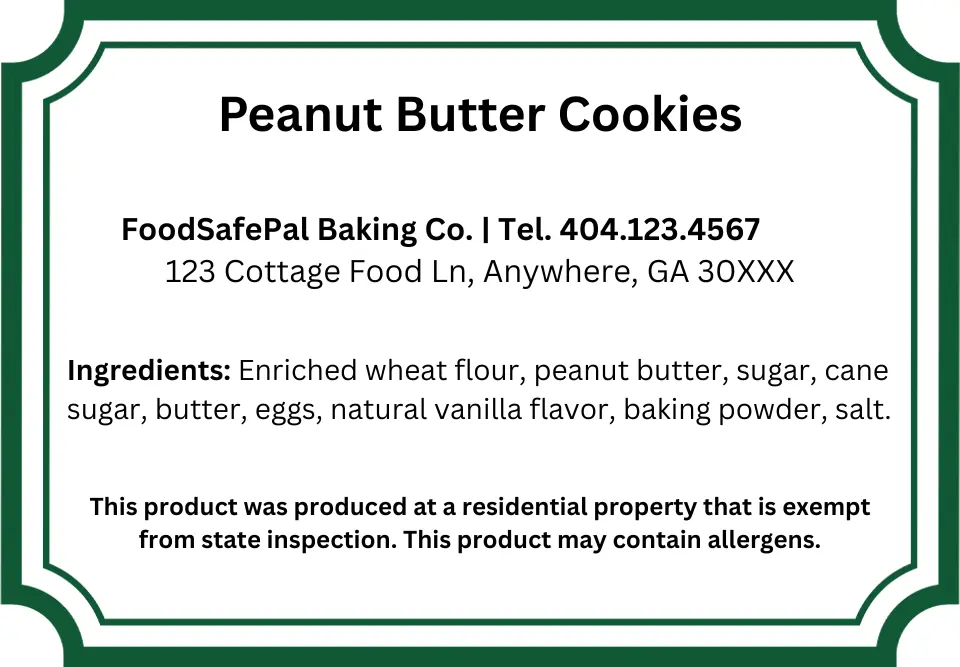
You can also request an ID number from the Department of Agriculture as an alternative to your address.
While not required, it’s best practice to also include a list of ingredients in descending order by weight to help customers make informed choices.
Summary
Every food item you sell under Georgia’s cottage food law must include a label or equivalent display with your business information and a disclosure about inspection and allergens.
The bottom line
Under Georgia’s cottage food law, you can produce and sell foods that don’t require time or temperature controls, like baked or other dry goods directly to people throughout the state.
If you want to start a cottage food business in Georgia, you must earn an ANAB-accredited food handler certificate, which you can do with FoodSafePal.
Earn Your Food Handlers Card + Certificate to Sell Cottage Foods
Finish in 90 Minutes. Meets Georgia’s Cottage Food Law.

Don’t forget to make sure that your products include the necessary information to inform customers.



